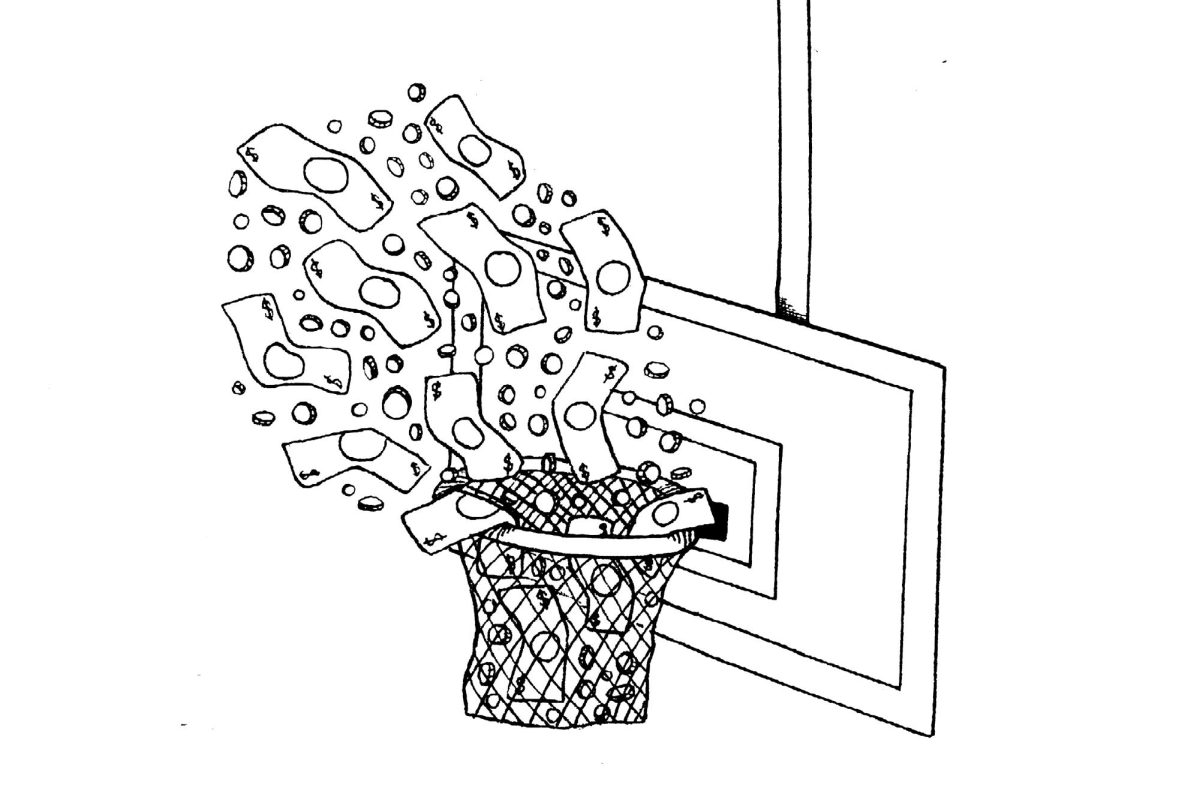Like D.C.’s legendary local groundhog Potomac Phil, the Student Association has poked its head outside, taken a look around and finally done its job. After squabbles and scandals, internal restructuring and votes on cabinet positions and resolutions last year, the installation of a new contraception vending machine on campus last month demonstrates that the SA can get things done – and just how far it still has to go.
At a moment when the right to bodily autonomy is under threat across the country, convenient, stigma-free access to contraceptives helps ensure students’ health is in their hands – not those of government officials. The vending machine, which is located in the University Student Center, sells a generic, more affordable version of Plan B than nearby CVS as well as medical supplies like Tylenol, Advil and tampons.
The SA’s effort to make the vending machine a reality began over the summer after the Supreme Court overturned Roe v. Wade in June. And now that it’s come to fruition, the machine’s installation is a rare success for the SA. Neharika Rao, a sophomore and the SA’s executive secretary of diversity, equity and inclusion, and Aiza Saeed, a senior and the executive cabinet’s communications director, led the effort alongside SA President Christian Zidouemba. After Zidouemba approached Northeastern University over the summer about its plans to install a similar vending machine in October, Rao and Saeed “worked directly” with members of the Office of Student Life to execute the plan.
More accessible and affordable contraception available directly on campus is a step forward for GW. But this is a case of meeting – not exceeding – expectations. The push to install the vending machine tells a different story than what the SA has, or more accurately hasn’t, been up to this year.
Zidouemba’s presidency got off to a shaky start when members of his cabinet attempted to remove him from office over the summer. Zidouemba allegedly threatened to fire SA members for using their titles in an open letter demanding that GW remove Supreme Court Justice Clarence Thomas from lecturing at GW Law after he voted to overturn Roe v. Wade. Though Zidouemba retained his position, the whole debacle – which involved a four-month-long Student Court lawsuit – cost the SA time it could have spent advocating for students.
Once the school year rolled around, the SA spent more of its energy restructuring itself to represent students than actually representing them. Fourteen of the 33 bills the SA Senate passed last semester approved nominees for a variety of positions within the student government. Another 10 pieces of legislation dealt solely with reforming the senate’s internal processes, like allowing senators to hold multiple committee leadership positions and removing the requirement that a chairperson of one committee must be a member of another.
With the vending machine, the SA demonstrated its potential to act as a conduit to convey students’ concerns to officials as GW undergoes a period of historic change. Though the scale of the vending machine project pales in comparison to the University’s search for its third president in three years or its highly anticipated replacement for the Colonials moniker, students needed – and still need – their voice to be heard on these issues.
We don’t expect our peers to retroactively handpick GW’s next president or paint Foggy Bottom hippopotamus gray over officials’ heads. But when it comes to major University-wide decisions, students need a larger seat at the table – let alone one in the room. Zidouemba, who received a little more than half of the 2,690 votes cast in last year’s SA elections, was the sole student included in the 17-member Presidential Search Committee. And while officials are conducting focus groups with students to garner input on the new moniker, they officially ruled out the student-favorite Hippos last month.
Without student input, the changes coming to GW may leave the overly bureaucratic systems in place at the University and its longstanding culture of racism and discrimination practically untouched. But it’s impossible for students to make their thoughts known when the governing body tasked with conveying them to officials would rather spar over parliamentary procedure than take a unified stand. The SA’s members must be mature and capable enough to present the needs, wants and occasional demands of GW’s thousands of students to officials.
Recent SA administrations have set and met even greater expectations. Last year, SA Vice President Kate Carpenter spearheaded efforts to expand SafeRide and advocate for U-Pass, which together made it easier, safer and more convenient to travel around Foggy Bottom and D.C. Besides a career fair planned for Feb. 10 and a commission for students to voice concerns about GW offices created last semester, the vending machine will be one of the only concrete achievements that most students will remember from this SA’s whole term. Make no mistake, the vending machine is a good first step – students asked, and their representatives answered. But when SA members vie for students’ votes later this year, they should expect to get quite a few blank looks – and ballots – in return.
This should be an inflection point for the SA. What could have been if they spent more time fighting for students instead of bickering over bylaws? Spring is coming soon, and the SA shouldn’t go back into hibernation.
The editorial board consists of Hatchet staff members and operates separately from the newsroom. This week’s staff editorial was written by Opinions Editor Ethan Benn and Contributing Opinions Editor Julia Koscelnik, based on discussions with Research Assistant Zachary Bestwick, Sports Editor Nuria Diaz, Managing Editor Jaden DiMauro, Culture Editor Clara Duhon, Design Editor Grace Miller and Contributing Social Media Director Ethan Valliath.


